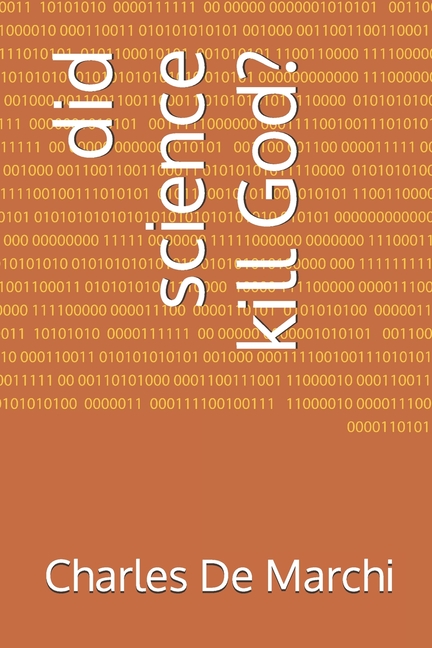Description
We live in a time where science dazzles us. It explains phenomena once shrouded in mystery, from the birth of galaxies to the complexity of our DNA. With such extraordinary power to uncover the mechanics of reality, it's no surprise that some wonder: in a world where science thrives, is there still room for God?
This question inspired me to write the book "Has Science Killed God?" as an attempt to reflect on the uneasy but essential relationship between science and faith. The title is intentionally provocative, echoing the rhetoric of public intellectuals like Richard Dawkins, who argue that science has rendered religious belief obsolete, especially after the acceptance of Darwinian evolution.
But my aim is not to refute science - quite the opposite. The book embraces it. Science is one of the most remarkable achievements of the human mind. It helps us map black holes, track viruses, and understand the origin of life. What I question, however, is whether scientific knowledge alone can address the full scope of human existence.
Beyond "How" - Asking "Why"
At the core of my argument lies a simple idea: science and religion answer different kinds of questions. Science is concerned with the how - processes, causes, mechanisms. Faith, on the other hand, ventures into the realm of why - meaning, purpose, moral value. To conflate these two domains is to misunderstand both.
This perspective is far from new. The biologist Stephen Jay Gould famously proposed the concept of "non-overlapping magisteria," suggesting that science and religion occupy distinct spheres of human understanding. When each respects the boundaries of the other, conflict is not inevitable - it becomes unnecessary.
And yet, today, we often see a stark polarization. On one side, a militant skepticism claims science as the only valid way of knowing. On the other, a rigid dogmatism refuses to engage with the empirical world. My book rejects both extremes. Instead, I advocate for dialogue - not to dilute either side, but to enrich our view of reality.
Faith Not as Rival, but as Companion
Critics of religion often point to evolution as proof that we no longer need God. But must evolution be viewed as an enemy of faith? I suggest an alternative: what if evolution itself is a mechanism through which divine creativity unfolds? Rather than being at odds, science and faith can illuminate different dimensions of the same mystery.
History supports this view. Modern science did not arise in a vacuum. Many of its founders - Newton, Kepler, Pascal - were deeply religious. Their discoveries were not rejections of faith but expressions of it. They believed the universe operated according to rational laws because it was created by a rational mind.
This is not to suggest that science proves God. Nor does it endorse any particular religious doctrine. Instead, it invites us to acknowledge the limits of science, not as a weakness, but as a recognition of its domain. Science tells us what is. Faith explores what ought to be. One measures. The other meditates.
This question inspired me to write the book "Has Science Killed God?" as an attempt to reflect on the uneasy but essential relationship between science and faith. The title is intentionally provocative, echoing the rhetoric of public intellectuals like Richard Dawkins, who argue that science has rendered religious belief obsolete, especially after the acceptance of Darwinian evolution.
But my aim is not to refute science - quite the opposite. The book embraces it. Science is one of the most remarkable achievements of the human mind. It helps us map black holes, track viruses, and understand the origin of life. What I question, however, is whether scientific knowledge alone can address the full scope of human existence.
Beyond "How" - Asking "Why"
At the core of my argument lies a simple idea: science and religion answer different kinds of questions. Science is concerned with the how - processes, causes, mechanisms. Faith, on the other hand, ventures into the realm of why - meaning, purpose, moral value. To conflate these two domains is to misunderstand both.
This perspective is far from new. The biologist Stephen Jay Gould famously proposed the concept of "non-overlapping magisteria," suggesting that science and religion occupy distinct spheres of human understanding. When each respects the boundaries of the other, conflict is not inevitable - it becomes unnecessary.
And yet, today, we often see a stark polarization. On one side, a militant skepticism claims science as the only valid way of knowing. On the other, a rigid dogmatism refuses to engage with the empirical world. My book rejects both extremes. Instead, I advocate for dialogue - not to dilute either side, but to enrich our view of reality.
Faith Not as Rival, but as Companion
Critics of religion often point to evolution as proof that we no longer need God. But must evolution be viewed as an enemy of faith? I suggest an alternative: what if evolution itself is a mechanism through which divine creativity unfolds? Rather than being at odds, science and faith can illuminate different dimensions of the same mystery.
History supports this view. Modern science did not arise in a vacuum. Many of its founders - Newton, Kepler, Pascal - were deeply religious. Their discoveries were not rejections of faith but expressions of it. They believed the universe operated according to rational laws because it was created by a rational mind.
This is not to suggest that science proves God. Nor does it endorse any particular religious doctrine. Instead, it invites us to acknowledge the limits of science, not as a weakness, but as a recognition of its domain. Science tells us what is. Faith explores what ought to be. One measures. The other meditates.
Last updated on
Product Details
- Jul 11, 2025 Pub Date:
- 9798292138518 ISBN-10:
- 9798292138518 ISBN-13:
- English Language




